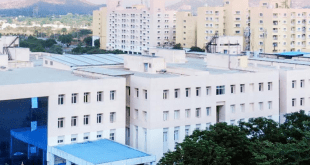Former Swedish Foreign Minister Ann Linde Calls for Tax Reforms and Universal Childcare, Highlights Bharat Summit’s Role in Defending Democratic Values
Panama’s Minister for Women’s Affairs Urges Pay Equity, Digital Access, and Greater Representation in Leadership Roles
National, 25 April 2025 – The much-anticipated Bharat Summit in Hyderabad opened today with a compelling session on Gender Justice and a Feminist Future, as part of its theme “Delivering Global Justice.” The dialogue brought together international political leaders, policymakers, and advocates committed to advancing gender equality, social justice, and inclusive governance.
The session was attended by Ann Linde, Former Minister for Foreign Affairs of Sweden; Rabia Abdallah, senior leader from Chama Cha Mapinduzi (CCM) party in Tanzania; Monica Fein, a Socialist Party politician in Argentina; Hamid Maysoon; Wael Alatoom; Maria Alejandra Panay, Minister for Women Affairs, Republic of Panama; and Undram Chinbat, a Member of Parliament from Mongolia along with Indian senior politicians Salman Khurshid and M M Pallam Raju.
Mr M. M. Pallam Raju highlighted policy frameworks like the Mahatma Gandhi National Rural Employment Guarantee Act (MGNREGA), the Right to Education Act, and Telangana’s Mahalakshmi Scheme, which provides free bus travel for women. He emphasised the power of education and mobility in uplifting communities. “When a woman in a family is educated, the whole family gets educated,” said Mr. Raju, underlining the ripple effect of women’s empowerment on social and economic development.
Salman Khurshid, former Union Minister, advocated for tax incentives to boost women’s employment and questioned the lack of female participation in heavy industries, such as infrastructure development. “Women must be part of every sector. The answer is not just the right laws—but the right mindset—and the right men who stand for this cause,” he said.
Former Swedish Foreign Minister Ann Linde spoke about the challenges facing Europe, particularly the decline in birth rates and structural disincentives for working women. She called for reforms in taxation policies and emphasised the urgent need for universal access to childcare. “If families cannot combine work and parenting, gender equality will remain out of reach,” she said, adding that any backlash against feminism must be firmly countered.
She further noted that the Bharat Summit plays a critical role in uniting voices to uphold democratic values. “In most parliaments across the world, women are still underrepresented. There are persistent gender biases. In my country, Sweden, women enjoy equal rights, resources, and representation—but that’s not the case everywhere,” she remarked.
Linde called for feminism-based policies and structural reforms to ensure meaningful representation. “The UN has never had a woman Secretary-General. I hope that changes in the next election,” she added. She also acknowledged India’s leadership in gender representation, noting, “India has had more female leaders than Sweden. Gender equality also leads to reduced violence and more effective conflict resolution.”
Monica Fein, a senior leader of Argentina’s Socialist Party, argued for women’s leadership in social and political transformation. “We don’t just want to support men—we want to lead. Leadership and equality must include gender-diverse individuals and the systems that support them,” she said, stressing that real democracy lies in inclusive participation.
From Tanzania, Rabia Abdallah, a senior CCM party leader emphasised the value of cross-regional dialogue and the importance of embedding women’s leadership in political structures to ensure sustained global justice.
Undram Chinbat, a Member of Parliament from Mongolia, highlighted Mongolia’s dual focus on STEM education for girls and climate-resilient training for rural women impacted by desertification. She announced that the upcoming COP summit, to be hosted in Mongolia, will showcase new climate policies with gender equality at their core.
Maria Alejandra Panay, Minister for Women Affairs, Republic of Panama, highlighted the systemic inequalities that Latin American women continue to face. “One in three women experience sexual harassment. And many indigenous, migrant, and young women remain invisible in mainstream policymaking,” she said. She called for better pay equity, expanded digital access, and stronger representation in science and leadership roles.
Indian legislator and advocate Praniti Shinde underscored the need for structural reform in how inclusivity is implemented, particularly for the LGBTQ+ community. Citing the Mythri Scheme in Telangana, which supports trans persons in law enforcement roles, she stated, “We need less talk and more action. Inclusion must be visible in employment, budgeting, and governance.”
The session ended with a shared recognition that gender justice must go beyond rhetoric and policy—it must be lived, invested in, and institutionalised.
 Newspatrolling.com News cum Content Syndication Portal Online
Newspatrolling.com News cum Content Syndication Portal Online






